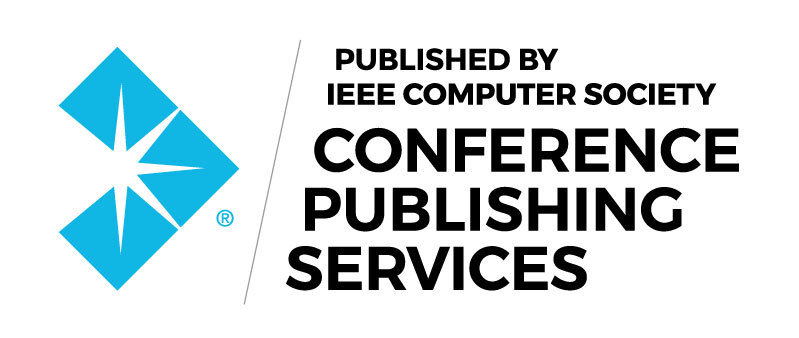NICOGRAPH International 2025
June 19-21, 2025 | The Kanazawa Theatre, Kanazawa, Ishikawa Japan
Update
| 2025-06-21 | The award winners are now available. |
| 2025-06-19 | Conference proceedings Page is now available. |
| 2025-06-04 | Information of each presentation has been updated. |
| 2025-05-29 | Details of the keynote speakers are now available. |
| 2025-05-29 | Program is now available. |
| 2025-04-14 | Registration is now open (early bird ends May 9th). |
| 2025-02-07 | Registration & Payment information has been updated. |
| 2025-02-07 | Keynote information has been updated. |
| 2025-01-29 | Schedule has been changed. |
| 2024-11-25 | Schedule is now available. |
| 2024-11-08 | Website opened. |
NICOGRAPH International 2025
The 24th annual international conference "NICOGRAPH International {{datex.year}}", organized by the Society for Art and Science will take place in {{datex.month}} {{datex.days}}, {{datex.year}} at the Kanazawa Theatre, Kanazawa City, Ishikawa, Japan.
NICOGRAPH has a quarter-century history. Its foundation can be traced back to 1985. The time-honored annual conferences have been organized by the Society for Art and Science since 2000, which aim at promoting the research combining science and art in computer graphics and related fields as well as to advance the development of interactive media art. In 2002, the first international conference NICOGRAPH International rose out of the domestic series, and since then NICOGRAPH international conference has been organized annually.
All accepted full/short papers will be included in the conference proceedings to be published by Conference Publishing Services (CPS) (https://www.computer.org/conferences/cps) and submitted to the IEEE Xplore and Computer Society digital libraries.
Important Dates
For long/short oral paper
- (Opened on Dec. 12, 2024)
- Abstract Submission Due
- Feb. 12
Jan. 29, 2025 - Paper Submission Due
- Feb. 19
Feb. 5, 2025 - Author Notification
- Mar. 20, 2025
- Camera Ready Submission Due
- Apr. 21, 2025
- Conference
- {{datex.month}} {{datex.days}}, {{datex.year}}
For poster
- (Opened on Dec. 12, 2024)
- Poster Submission Due
- Apr. 7, 2025
- Author Notification
- Apr. 14, 2025
- Camera Ready Submission Due
- Apr. 21, 2025
- Conference
- {{datex.month}} {{datex.days}}, {{datex.year}}
All deadlines are 23:59 GMT time on the date stated
Awards
{{ error }}
Loading...
{{entry.award_title}}
- {{item.title}}
{{item.author}}
Keynote Speakers
NICOGRAPH International 2025 presents keynote speaker sessions with three leading experts in the field of computer graphics, animation, and human computer interaction.
Sharing Perspectives and Visualizing Memory: The Potential of Documentary Animation (In Japanese)
Arisa Wakami
Tokyo Zokei University, Japan
Abstract
This talk explores the possibilities of "sharing perspectives" and "visualizing memory" in "animation documentary", a genre gaining attention alongside the advancement of digital technology. While conventional documentaries have emphasized "objectivity", animation possesses a unique strength in visualizing "subjectivity", vividly recreating memories and mental landscapes that were never recorded. In particular, by visualizing the internal perspective of those who experienced events, animation creates visual experiences that transcend mere factual documentation and can be empathetically shared with others. The necessity of animation lies in its ability to embody events and abstract emotions that cannot be fully captured by cameras, enabling the construction of reality beyond physical constraints. This talk will examine new approaches to documentation brought forth by animation documentaries and their potential for visual expression, incorporating the speaker's original works and making-of materials.
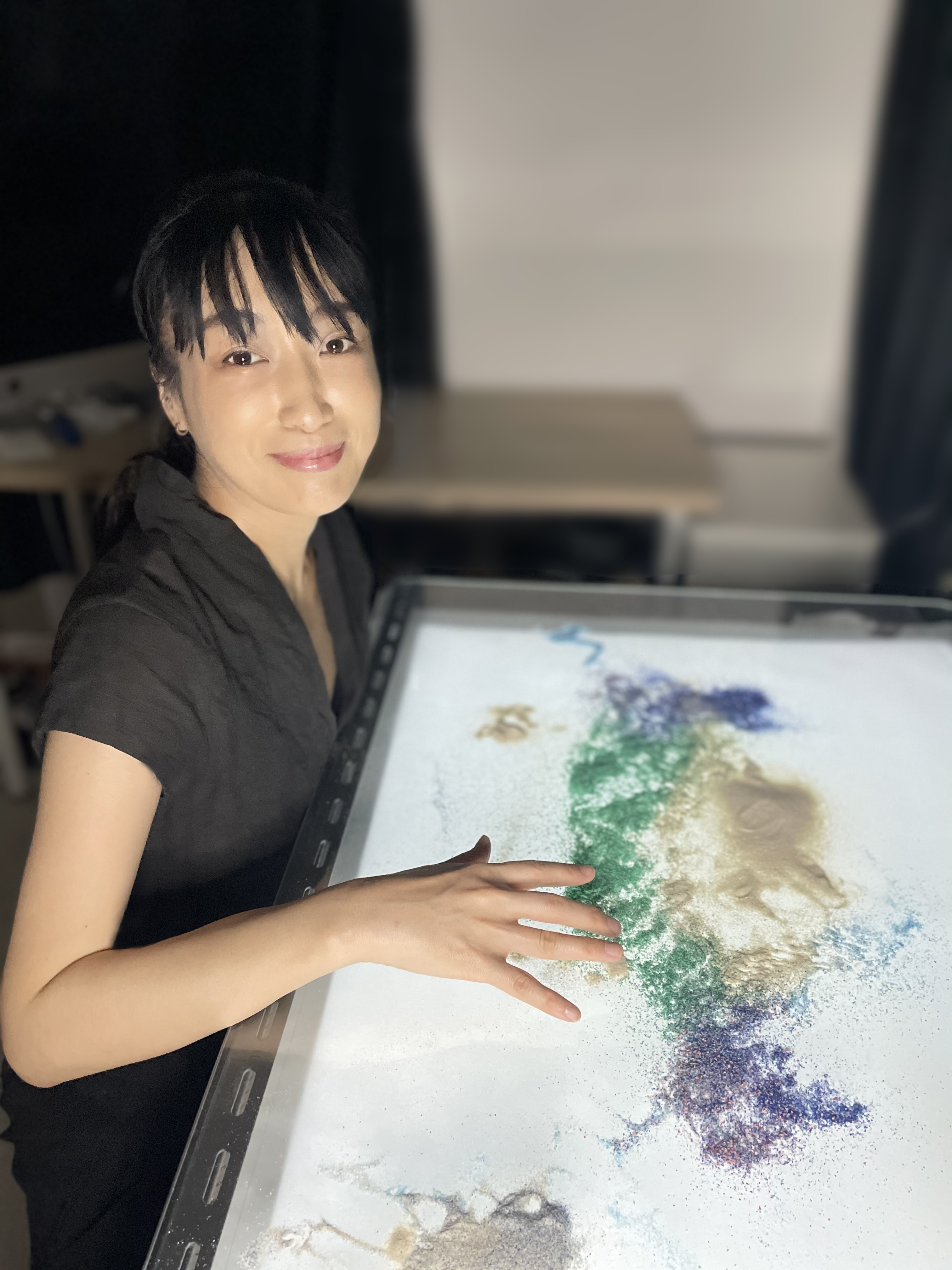
Biography
Arisa WAKAMI, Animation Artist / Associate Professor at Tokyo Zokei University. Graduate of the International Academy of Media Arts and Sciences [IAMAS]. Her omnibus documentary animation series inspired by her own childbirth experience—"Birth-Weaving Life" (2015), "Birth-Dancing Life" (2017), and "Birth- The cycles of Life " (2020)—has received numerous awards including Best Director Award at the Los Angeles Documentary Film Festival, Excellence in Planning Award at the Eibunren Award, and Audience Award at the Aichi Women's International Film Festival. She directed the animation segments for the feature-length documentary film "Prison Circle" (directed by Kaori Sakagami), which received the 2020 Agency for Cultural Affairs Film Award - Grand Prize for Cultural Documentation. Her work "Kappa-River Moster-," created in collaboration with local storytellers and residents based on folktales from Miyazaki Prefecture, has been highly acclaimed, winning the 2022 Minister of Education, Culture, Sports, Science and Technology Award at the Eibunren Awards. Beyond filmmaking, she conducts workshops for children and adults at museums, film festivals, and elementary schools. Board member of the Japan Animation Association.
ANIMINS Project: Researching and Developing AI-based Creator’s Support Tools for Anime Production
Tatsuo Yotsukura
OLM Digital Inc., Japan
Abstract
OLM Digital Inc. has been accepted into the GENIAC (Generative AI Accelerator Challenge) project, which is intended to strengthen the development of generative AI and is sponsored by the Ministry of Economy, Trade and Industry and NEDO. We clearly position AI as a "supporting tool for creators." We will thoroughly investigate the feasibility of using AI in the anime production process. We will examine two technologies:
-
(1) The utilization of AI in the core production processes of key animation, in-betweens, and finishing work.
-
(2) AI-assisted character drawing support.
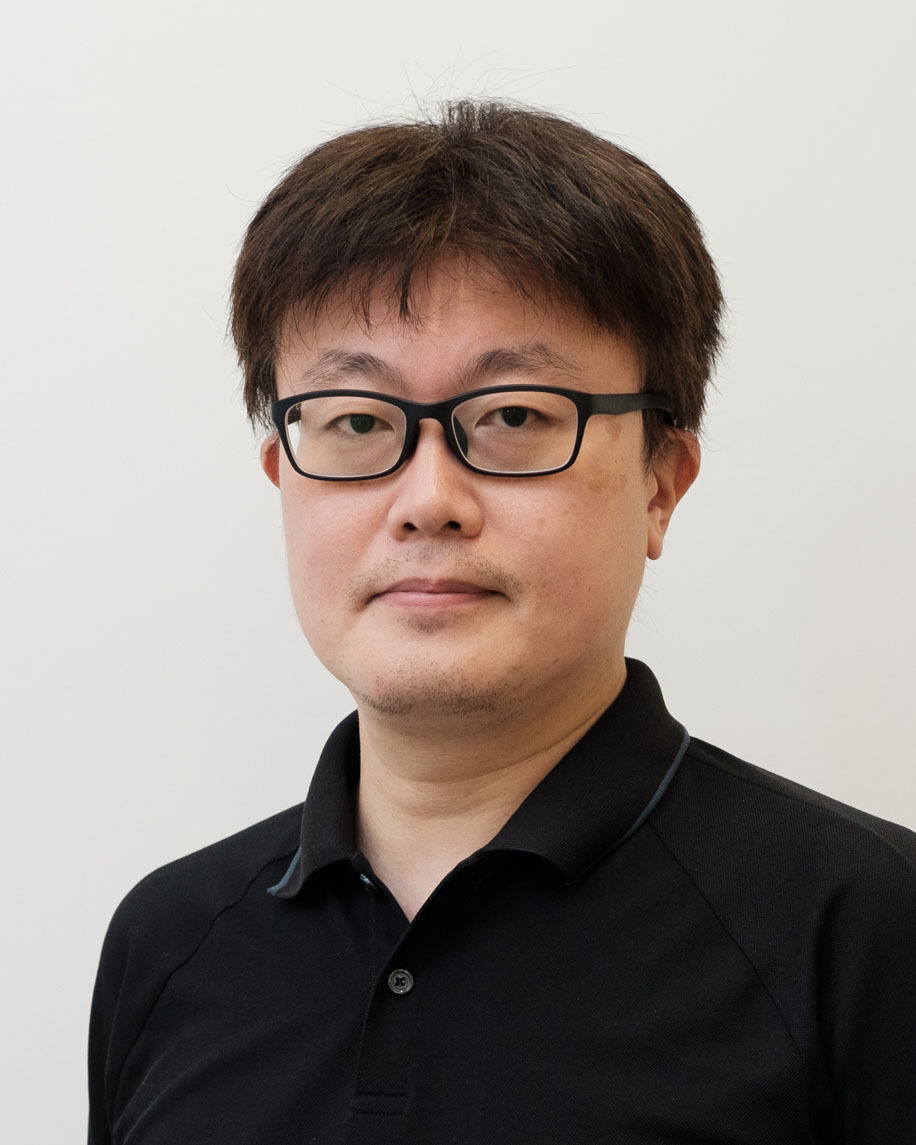
Biography
Tatsuo Yotsukura is the head of the R&D division at OLM Digital Inc., in Japan, and is also a research director at the Advanced Research Group of IMAGICA GROUP, Inc., Japan. Notable projects he has worked on as a production engineer include the Pokémon movies. Prior to joining OLM Digital in 2009, he worked as a computer graphics researcher at ATR (Advanced Telecommunications Research Institute International) in Japan. He received his Ph.D. from Seikei University in 2003.
Towards More Accessible Tools for Content Creation
Hongbo Fu
The Hong Kong University of Science and Technology, Hong Kong
Abstract
Traditional game and filming industries heavily rely on professional artists to make 2D and 3D visual content. In contrast, future industries such as metaverse and 3D printing highly demand digital content from personal users. With modern software, ordinary users can easily produce text documents, create simple drawings, make simple 3D models consisting of primitives, take images/videos, and possibly edit them with pre-defined filters. However, creating photorealistic images from scratch, fine-grained image retouching (e.g., for body reshaping), detailed 3D models, vivid 3D animations, etc., often require extensive training with professional software and is time-consuming, even for skillful artists. Generative AI, e.g., based on ChatGPT and Midjourney, recently has taken a big step and allows the easy generation of unique and high-quality images from text prompts. However, various problems, such as controllability and generation beyond images, still need to be solved. Besides AI, the recent advances in Augmented/Virtual Reality (AR/VR) software and hardware bring unique challenges and opportunities for content creation. In this talk, I will introduce my attempts to lower the barrier of content creation, making such tools more accessible to novice users. I will mainly focus on sketch-based content generation and content creation with AR/VR.
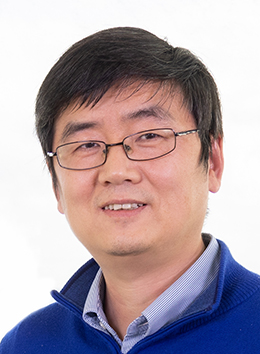
Biography
Hongbo Fu is a Professor and Acting Head at the Division of Arts and Machine Creativity, Hong Kong University of Science Technology. Before joining HKUST, he worked at the School of Creative Media, City University of Hong Kong, for over 15 years. He had postdoctoral research training at the Imager Lab, University of British Columbia, Canada, and the Department of Computer Graphics, Max-Planck-Institut Informatik, Germany. He received a Ph.D. degree in computer science from the Hong Kong University of Science and Technology in 2007 and a BS degree in information sciences from Peking University, China, in 2002. His primary research interests fall in computer graphics, human-computer interaction, and computer vision. His research has led to over 150 scientific publications, including 70+ papers in the best graphics/vision journals (ACM TOG, IEEE TVCG, IEEE PAMI) and 30+ papers in the best vision/HCI conferences (CVPR, ICCV, ECCV, CHI, UIST). His works have received a Silver Medal from Special Edition 2022 Inventions Geneva Evaluation Days (IGED), the Best Demo awards at the Emerging Technologies program, SIGGRAPH Asia in 2013 and 2014, and the Best Paper awards from CAD/Graphics 2015 and UIST 2019. He was the Organization Co-Chair of Pacific Graphics 2012, the Program Chair/Co-chair of CAD/Graphics 2013 & 2015, SIGGRAPH Asia 2013 (Emerging Technologies) & 2014 (Workshops), Pacific Graphics 2018, Computational Visual Media (CVM) 2019, and the Conference Chair of SIGGRAPH Asia 2016, Expressive 2018, and CVM 2025. He was on the SIGGRAPH Asia Conference Advisory Group and is currently Vice-Chairman of the Asia Graphics Association. He is the Assistant Chair of SIGGRAPH Asia 2025 Technical Papers Program. He has served as an Associate Editor of The Visual Computer, Computers & Graphics, and Computer Graphics Forum.
Invited Speakers (Workshop2)
International Workshop for Science and Art 2025 will feature two invited speakers specializing in computational design and computational architecture.
PLAY with MATERIALS-material-oriented computational design and robotic construction
Ye Zhang
Tianjin University, China
Abstract
Algorithm technology and computer simulation tools enable material performances involve in decision making process, generating reasonable design geometries and effective construction approaches. In this talk, I would like to share 7 pavilions that I have designed and built in China, using different materials such as concrete, fiber-glass, wood, expandable polystyrene, etc. The design process explores how the properties of these materials are embedded in computer models and how they affect the geometric behavior, manufacturing constrains and assembly logics of the pavilions. In contrast to the traditional sequence of designing the form, then analyzing the structure, and finally filling it with materials, we believe that the elements of a building are not independent. Digital technology can help us collaborate among material performance information, design decisions, and construction techniques to balance the innovation and rationality of architectural design.
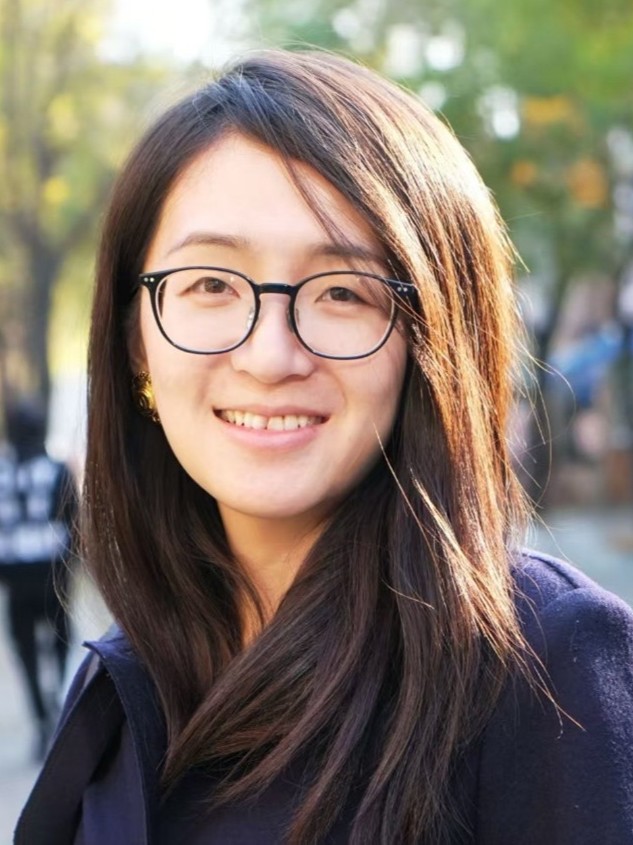
Biography
Zhang Ye is an Associate Professor in the Architecture Department at the University of Tianjin, where she is also a member of the university’s Digital Design Lab. In her teaching role, she is responsible for the following; teaching design studios, workshops, and seminar courses where she explores the concepts of materiality, design systems, computational design techniques, and fabrication processes in contemporary architecture and design. Her research field mainly comprises two parts: digital fabrication, and digital simulations of architectural material’s behaviors. Her work on interdisciplinary design research connects architecture, engineering, and computations to explore the ecosystems of contemporary urban environments. It seeks to develop and speculate upon new knowledge for architecture, where the practice of design engages in both social constructs and material performances on numerous scales. Another of her research topics is dynamic performances of architectural materials. In her recent research on the hydro-deformation of wood and its digital simulations, by connecting material sciences with mathematic models, computational technology and architectural design, she designs a software which can analyze and simulate wood dimensional changes in different humidity environments. Through this research, wood deformations in architectural design can be treated as positive characters instead of negative ones as they can be predicted, controlled, and organized. Zhang Ye’s professional history includes working for the Advanced Design Lab of Tokyo University. She participated in several research projects which have been published and widely exhibited in Japan. She teaches design studios, workshops, and seminar courses where she explores the concepts of materiality, design systems, computational design techniques, and fabrication processes in contemporary architecture and design.
A Daily work of Computational Architect
Kensuke Hotta
Keio University, PO_Limited Liability Company Founder, Senior Partner,Japan
Abstract
What does a Computational Architect do, a job that is unfamiliar in Japan? The title I have come up with is a job title that I have been shaky in defining myself, but it is a profession that does not design buildings as objects, but rather works with projects or ‘auxiliary lines’ of design. I would like to introduce the contents of this new kind of work.
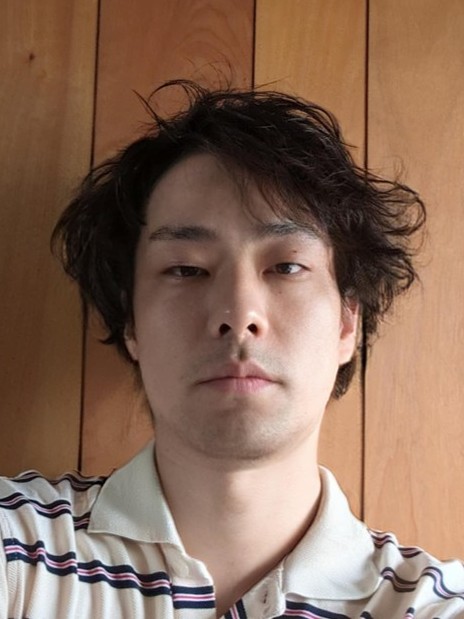
Biography
Tokyo-based Computational Architect (CA), an engineer who uses computers and algorithms to design and support design. He obtained a degree from the newly established PhD course in architectural design at the Architectural Association. He then moved to Japan, where he founded and incorporated his own profession as a CA. He specialises in generative design and human-computer interaction. He works on various designs, including architecture, as well as project planning and drafting. His favourite food is snow crab. He has worked for several architectural design firms in practice and continues to work for several major firms. He also runs his own companies, POLLC and HQLLC. He has also worked as a researcher at the University of Tokyo and Keio University.
{{ error }}
Loading...
Details
{{data.program[session[0].day].day}}
{{entry.session_title}}
{{entry.ws_title}}
| {{presentations[pid].type}} {{presentations[pid].type}} ({{presentations[pid].id2}}) |
{{presentations[pid].title}},
{{presentations[pid].authors}}
{{presentations[pid].title}}
{{presentations[pid].title}},
{{presentations[pid].authors}}
{{presentations[pid].title}},
{{presentations[pid].authors}}
Abstract{{presentations[pid].abstract}} DetailsAbstract{{presentations[pid].abstract}} Details |
|---|
Information
Oral Presentation
The presentation time is 20 minutes (15 minutes presentation + 5 minutes Q&A) for a long-oral paper and 15 minutes (10 minutes presentation + 5 minutes Q&A) for a short-oral paper. Please make sure your laptop and presentation software is working and meet your session chair before the session starts.
Poster Presentation
Poster Session
Accepted posters will be presented at the poster session on 6/19(Thu) or 6/20(Fri). You will need to print out your poster and bring it to the conference venue yourself. You are expected to stand in front of your poster during the session. We will prepare an A0-size poster panel for each poster. Please make sure your poster does not exceed this size.
Poster Fast Forward Session
The Poster Fast Forward session will be held from 15:25 to 15:40 on 6/19(Thu). At least one author of each poster will be presenting a 30-second preview of the poster. Please check the email about the poster fast forward. It describes the presentation instructions and includes the PPT file upload link.
Registration & Payment
The online registration for "NICOGRAPH International 2025" is now opend. Please fill out the linked form of the button below.
Registration Fee
| Early bird*2: until May 9th | Standard*3: after May 10th | On-site | |
|---|---|---|---|
| Regular: Member*1 | 35,000 JPY | 40,000 JPY | 45,000 JPY |
| Regular: Non-member | 40,000 JPY | 45,000 JPY | 50,000 JPY |
| Student: Member*1 | 20,000 JPY | 25,000 JPY | 30,000 JPY |
| Student: Non-member | 25,000 JPY | 30,000 JPY | 35,000 JPY |
| Student: Member*1 (Presenter) | 15,000 JPY | 20,000 JPY | 25,000 JPY |
| Student: Non-member (Presenter) | 20,000 JPY | 25,000 JPY | 30,000 JPY |
Note
*1 Member of the Society for Art and Science or ADADA.
*2 Early bird registraion opens on April 14th.
*3 Standard registration closes on June 18th.
Call for Submission
Submission categories include long/short oral paper (up to 8 pages) and poster (up to 2 pages). NICOGRAPH International 2025 reviewing is single blind, in that authors are not shared the names of the reviwers, but the reviewers know the authors. All accepted full/short papers will be included in the conference proceedings to be published by Conference Publishing Services (CPS) (https://www.computer.org/conferences/cps) and submitted to the IEEE Xplore and Computer Society digital libraries and submitted for possible indexing through INSPEC, EI (Compendex), Thomson ISI, and other indexing services.
Online Submission: https://easychair.org/my/conference?conf=nicoint2025
All papers (full/short/poster) must be written in English, and use the following templates for preparing your papers:
IEEE Templates (DOC, Latex, Overleaf) (8.5" x 11", US Letter)
Authors may optionally upload supplementary material, which may include videos, audios and images to showcase results/demo of the proposed approach/system. With the electronic submission system, you can submit your papers and edit your submission as many times as you need before the submission deadline. The authors are encouraged not to wait till the submission deadline and register their paper titles and abstracts as earlier as possible to facilitate the reviewing process. By submitting a paper the authors confirm that their paper represents original previously unpublished work, and if accepted, at least one of the authors will register for the conference and present the paper.
Authors can submit papers related to what has already been published in journals or conference proceedings. However, please be aware of the copyright rules of the previous publication, and be sure to cite the publication, especially, in case it has been published in a journal paper or a reviewed international proceeding. Authors also need to clarify a difference or progress from the previous publication. The previous publication is necessary to be uploaded through a submission form for the reviewing purpose.
Topics and Keywords of the conference include but are not limited to:
- Computer Graphics
- Computer Vision
- Image/Video Processing
- Visualization
- Non-Photorealistic Rendering
- Animation
- Multimedia
- Virtual Reality/Augmented Reality
- Digital Art
- E-Heritage
- Video Game
- Content Design
- Affective Computing
Venue & Accommodation
NICOGRAPH International 2025 will take place at The Kanazawa Theatre.
The Kanazawa Theatre
The Kanazawa Theatre is a multipurpose hall that located in Shimotoda-machi, Kanazawa City, Ishikawa in Japan. It features a 1,919-seat grand hall and hosts a variety of events from operas to fun musicals.
Address | 6-27 Shimohondamachi, Kanazawa, Ishikawa 920-0993, Japan
Access
Please check the following link for the details of access to The Kanazawa Theatre from Kanazawa Station. This link is only avilable in Japanese.
https://www.kagekiza.gr.jp/access/
Accommodation
Please reserve appropriate hotels at your preference. We normally recommend hotels near Kanazawa Station or Korinbo and Katamachi.
{{ error }}
Loading...
Organization
{{roles.title}}

{{chair.name}}
{{chair.affiliation}}
{{roles.title}}
In Cooperation with:
ADADA JAPAN (https://adada.info/ja)
NICOGRAPH Code of Conduct
25. March, 2023(Created)
1. April. 2023(Board approval)
NICOGRAPH aims to contribute to the advancement and development of art and sciences through free and vigorous discussion while exploring the interface between art and science. To achieve this, it is necessary to create an environment in which each participant can engage in discussion in a safe and secure manner while embracing diversity. Therefore, we expect all NICOGRAPH participants to adhere to the following policies.
- Do not violate life, health, safety or property of participants.
- Respect personality and privacy of participants.
- Do not discriminate against participants based on their gender, sexual orientation/gender identity, disability, age, national origin, race, faith or creed, or other characteristics. NICOGRAPH welcomes respect for all participants while considering cultural diversity in society.
- Do not behave with any harassment. NICOGRAPH welcome to prevent harassment in any academic activities.
- Do not injure participants, their property, reputation, or employment through false or malicious conduct, rumors, or other verbal or physical abuse.
- Conduct honest and fair discussions from an objective standpoint based on facts and data, and fairly evaluate the contributions of participants.
- Respect the intellectual property rights and intellectual achievements of participants.
- Do not interfere with the progress of a conference.
- Disseminate information on the network while complying with the law and based on the agreements of participants for above 1-8 terms.
- Notify to the NICOGRAPH Executive Committee if you find any conduct that violates the above or that may threaten the operation of the participants or related organizations.
- All participants agree to and support following this policy and share a duty of effort to ensure compliance.
- Any participants who intentionally violate the above 1-8 terms will be disqualified from participation in events for a maximum of four (4) years. The NICOGRAPH Executive Committee will determine it through deliberate discussions.
Additional notes
If a participant behaves in unacceptable behavior at NICOGRAPH that violates the above, or has done so in the past, the NICOGRAPH Executive Committee reserves the right to take any action it deems appropriate:
- Prohibit participation in any NICOGRAPH activities, including publication of papers.
- Prohibit profit from any activities of NICOGRAPH.
- Suspend or terminate a membership of the Society for Art and Science.
The NICOGRAPH Executive Committee may take these actions for an offender who has a membership of the Society for Art and Science or not.
We appreciate your understanding and cooperation.
Contact
Office of the society for art and science
Itoh laboratory, Department of Information Sciences, Ochanomizu University
2-1-1 Otsuka, Bunkyo-ku, Tokyo, 112-8610, Japan
TEL:+81-3-5978-5700
e-mail: nicoint2025-org _at_ art-science.org


